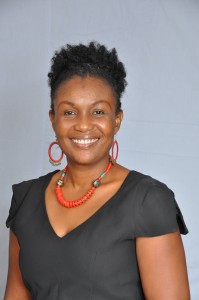This article was originally posted on allAfrica.com
By Nafi Chinery
The number of new Ebola cases in January 2015 dropped to the lowest weekly level since June 2014.
As a result, the World Health Organization recently said they are shifting their focus to not only ending the outbreak but to rebuilding the three countries that have been hardest hit: Guinea, Liberia, and Sierra Leone.
Up to this point in the Ebola response, men have been leading the directives and making most of the high-level decisions.
The national Ebola task force, which has now been replaced by the incidence management systems constituted by the government of Liberia, for example, is led by female President Ellen Johnson Sirleaf, but 90% of the members are men. Other task forces like the Bomi county and joint task force (JFT) in Liberia are also male-dominated.
The lack of women tapped as leaders during the Ebola crisis has been an unfortunate oversight. Male leaders tend to have fewer ties to communities and traditional roles, such as caring for the sick and carrying out burial functions, than do women.
Further, in community after community, it is local women who have been the primary people working on the Ebola defense plan.They have been involved in Ebola education and have provided psycho-social support to communities who have been traumatized.
They have been at the frontlines distributing soap, watering cans, and information on health care facilities to help meet people’s most basic needs. Daily, they offer an invaluable service by providing healthcare tips in the local languages that foreign staff of international organisations may not know.
Women have been working at the national level, too. Take the women of Sierra Leone, led by the 50/50 group and organizations like the River Women’s Peace Network, which established a Women’s Response to Ebola Campaign to bring women’s skills and knowledge to bear in fighting Ebola.
Volunteering at the ministry of health and sanitation’s toll free call Centre, the group’s work has reportedly increased community enquiries relating to accessing care services, accurate information about Ebola, and the care and custody of orphans.
The African Women’s Development Fund (AWDF), where I work, has long recognized the skills and leadership capacity of women. To date, AWDF has awarded grants of over US$500,000 to 42 women’s organisations in Liberia, Guinea and Sierra Leone to address Ebola. The idea is to strengthen women’s capacity to respond to the Ebola crisis in hard to reach communities.
This directly resulted in fewer market women being affected by the virus and increased the number of communities and women’s groups who spread their knowledge on Ebola to other rural communities and family members.
In both Liberia and Sierra Leone, whenever there has been an increase in women’s involvement at the higher levels of leadership, it has produced faster and sustained results.
For example, in Liberia, both ActionAid Liberia (AAL) and the Angie Brooks Centre ensured that women and young people’s perspective, involvement and needs were factored into the national Ebola response plans.
They trained and involved women at all levels of activities including using local women to translate Ebola awareness messages in local languages in rural areas. Korto Williams, AAL Country Director, visited the AWDF offices on 6thFebruary 2015 to update staff on the Ebola situation in Liberia.
During her presentation she said, “Ebola would have ended earlier if women were involved at the early stages of the national response plan”. Her organisation has reached 360,000 people in 278 communities across 6 counties so far, mostly women and children. As the Ebola crisis shifts to rebuilding communities, we cannot afford to keep women out of decision-making roles any longer.
We need women’s knowledge and input. Women, especially rural women, are the custodians of culture and tradition and if we want to see a change in culture, tradition and lifestyles of the people in affected communities then women are best suited to lead the way. Their skills in community social mobilization are crucial and they often have the best ties to the communities in the first place.
Now is the time to invite more of the women AWDF and others work with to the highest levels of decision-making. While it may take more effort to find knowledgeable and read-to-lead women in some regions, they exist in every community and country and their breadth and depth of knowledge are valuable.
For real change to take place in the fight against Ebola, women must be represented in significant numbers at every level of decision-making, planning, monitoring and implementation.
 Nafi Chinery is the Capacity Building Programme Specialist at The African Women’s Development Fund and an alumni of the Aspen Institute’s New Voices Fellowship.
Nafi Chinery is the Capacity Building Programme Specialist at The African Women’s Development Fund and an alumni of the Aspen Institute’s New Voices Fellowship.
